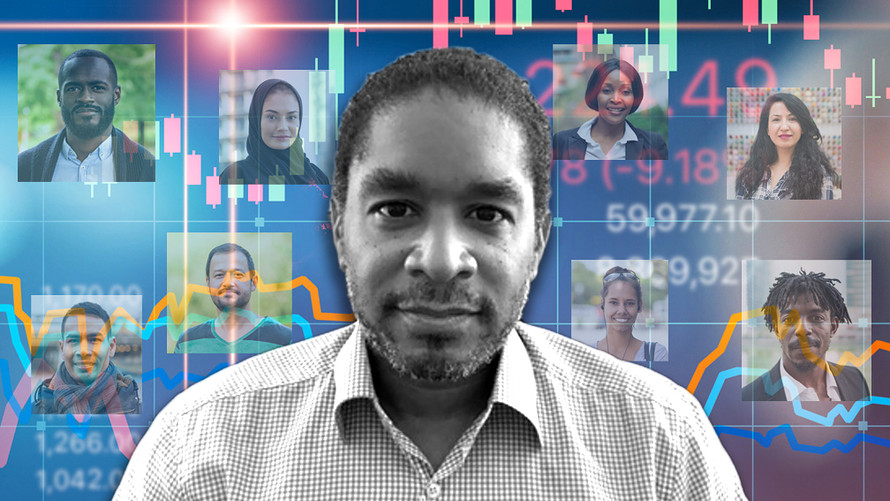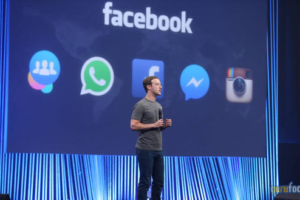
Throughout Troy Prince’s 30-year finance career, which has included stints at Salomon Brothers and Wells Fargo and spanned several continents, he has been haunted by the fact that he would see so few faces that looked like his. When he asked his employers why, he said, they always responded, “We can’t find them.”
That never made sense to Prince, 49, who wants to help aspiring minority traders realize their dreams of working on Wall Street. The nonprofit he founded, Wall Street Bound, aims to provide access to financial-services careers for urban youth, targeting ethnic minorities largely between the ages of 18 and 24 who often coincide with more marginalized or low-income populations.
There is no shortage of research that demonstrates how far diversity in the finance world still has to go. Just four Fortune 500 CEOs are Black, Fortune reported in July; Roger Ferguson, the head of the financial-services company TIAA, is the lone Wall Street representative. A McKinsey study released in May found that minorities represented just 13% of U.S. and U.K. executive teams in large companies in 2019, an uptick from 7% in 2014.
An analysis of the 44 biggest U.S. banks released in February by the U.S. House Committee on Financial Services found that “although the workforce diversity demographics of the nation’s largest banks appear to align with the composition of the U.S. labor force, bank workforce diversity is more visible in entry-level rather than executive and senior-level positions.” More recently, Wells Fargo WFC, +0.65% CEO Charles Scharf came under fire for remarking at a meeting over the summer that there is a lack of qualified minority candidates to meet the bank’s diversity goals.
Prince caught the trading bug from a stock-picking contest in high school, started making cold calls for a retail broker at Shearson Lehman Brothers at 17, then spent two years working for Salomon Brothers while attending New York University’s Stern School of Business. He graduated at 20, spending the next three decades as far away as Vietnam and as close as Wall Street.
“I grew up in the Bronx, exactly 11.2 miles from the New York Stock Exchange. How is the greatest economic engine mankind has ever known 11.2 miles from the poorest congressional district in America?” the founder and CEO of Wall Street Bound told MarketWatch in an interview conducted in late July and in subsequent emails. “When I moved back last year, it was just clear to me things haven’t gotten any better.”
Even in these difficult pandemic times, Prince has been making strides. The past summer he hosted a successful virtual mini-boot camp, which drew appearances by billionaire investor Leon Cooperman and Mario Gabelli, the founder and CEO of GAMCO Investments, fellow Bronx natives.
Wall Street Bound has also partnered with the proprietary trading firm Maverick Trading, which will eventually allow graduates of the nonprofit’s Diverse Trader Training Program to trade the firm’s capital and keep between 70% and 80% of profits. The program, which will be virtual, will provide qualified candidates with preparation for front-office careers in finance, a technical knowledge base, live trading experience, mentorship and, importantly, an introduction to a network of employers looking to diversify their workplaces.
The school will launch as soon as he has the necessary funds. Here is more from MarketWatch’s interview with Prince, which is the latest installment of The Value Gap:
MarketWatch: What is Wall Street Bound all about?
Prince: Our motto is “Trading paths to Wall Street for urban youths.” The idea that … it doesn’t happen on its own, and it’s a two-sided endeavor. One, it’s a community that’s not typically exposed to these careers to the markets. The other side … schools that largely serve the Black and brown populations are not top recruiting schools for Wall Street, so there’s a mismatch there.
MarketWatch: How has fundraising progressed from when you began in April 2019, through the Black Lives Matter movement and protests, and the pandemic?
Prince: We raised more money in the last few months of the BLM [Black Lives Matter] movement than in the year since we launched. That being said, we still have a ways to go towards reaching our $500,000 target. Fundraising is our No. 1 challenge to scaling the reach and scale of the mission and adding additional hands on deck to build execution capacity.
MarketWatch: What do you think the main fundraising challenges are?
Prince: Certainly the pandemic. I understand this is a moment of uncertainty for everyone, so of course, at times of uncertainty, it’s the most natural thing — people are concerned with you and yours. Secondly, again, I think it goes to what is also natural. You have to be moved or inspired by a certain story based on your own background. … Last but not least, as a new nonprofit CEO, I have to take responsibility myself to take the message out there and get into the right rooms.
MarketWatch: Can you describe some of the potential candidates who have asked to take part?
Prince: [He describes some of the 200 emails he has received from as far away as Africa and Saudi Arabia, some of which he has shared on his LinkedIn page.] A young man from Florida: “I started teaching myself to trade at age 15 or 16, Latino, I grew up, my parents picked fruit, during quarantine and corona I’ve been massively trading.” A young man from Canada, clearly of South Asian descent by his last name, he’s studying mathematics, and he said: “I’ve noticed my colleagues get interviews and the job opportunities where I haven’t, can you help me?” A Native American: “I’m a trader at Maverick, this is an opportunity I would like my two Black nieces to have that I didn’t have at their age.” … Just constantly these stories.
A theme that comes up quite often from these young Black and brown kids who want to learn to trade: More than one say they want to learn to give back to their community. It reminds me of why I’m doing this.
MarketWatch: What are the biggest obstacles for people of color trying to get into finance?
Prince: One is awareness, two is social capital. We don’t grow up with uncles, fathers, brothers who play golf with MDs or run desks. That’s not our typical story. The network, the introductions …
MarketWatch: What does the financial industry need to do to bring more people of color into the sector?
Prince: Support Wall Street Bound and other organizations that are intentionally trying to bridge the opportunity divide between the capital markets, financial services careers and urban talent. Wall Street on its own is incapable of recruiting and training urban talent. And the urban talent on its own is incapable of cracking open the doors. There has to be intentionality and a bridge, an organization bringing those two together. It’s the only way.
MarketWatch: How important is financial literacy to reducing the racial wealth gap?
Prince: Financial literacy on its own doesn’t get you to the point where you have the additional income and asset to invest. It has to be coupled with the income conversations, the behavior conversations and the investment conversations. … Even if you became the world’s smartest investor, you’re Warren Buffett, you’ve got $500 bucks in the bank, you double it in a year and now you’ve got $1,000 bucks in the bank. That’s not moving the needle. The average Black family has one-tenth the net worth of the average white family.
MarketWatch: What makes a good trader? What are you looking for?
Prince: Humility, discipline, intellectual curiosity, hunger we have in spades, willingness to put in the hard work. Most people do not recognize how difficult a job it is and how long it takes.
MarketWatch: In working with young people, what are the biggest misconceptions you’ve run into about money markets?
Prince: With young people, it’s for them to recognize it’s a long journey to mastery. The length of time to become aware of that first step along that journey is not mastery of concept or mastery of analysis; it’s mastery of self. And that is absolutely where they get misperceptions.
You can’t be a trader without being disciplined and without knowing yourself, and that’s where most of the work needs to be done, as opposed to the technical skills. … Most people don’t realize trading is probably 80% mental. Focus on analysis, which tools, understanding who you are and coming up with a trading plan according to your own specific personality. Know your strengths and weaknesses.
Everyone knows the old adage — cut your losers short, let your winners run. No one is able to do it. Why?



